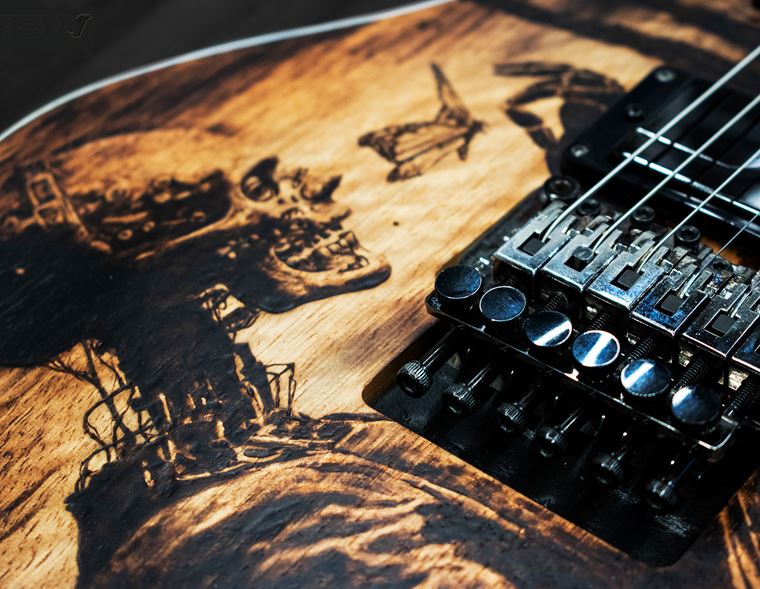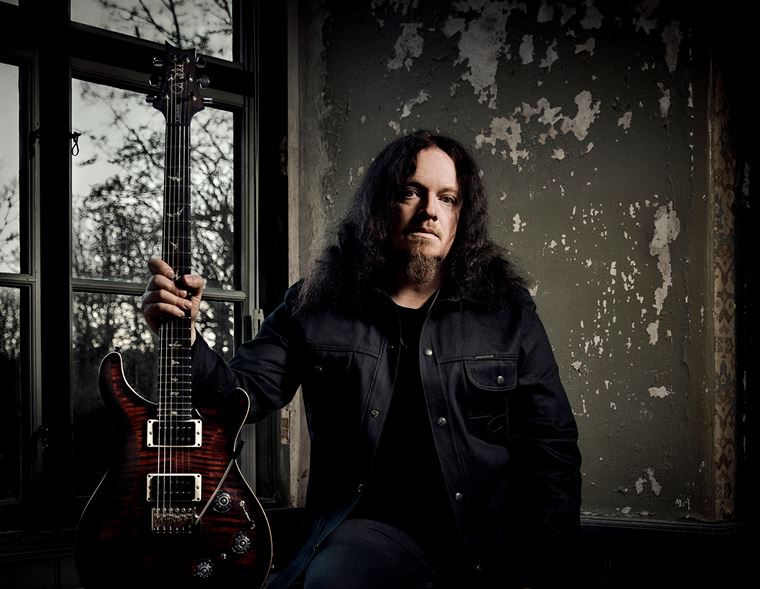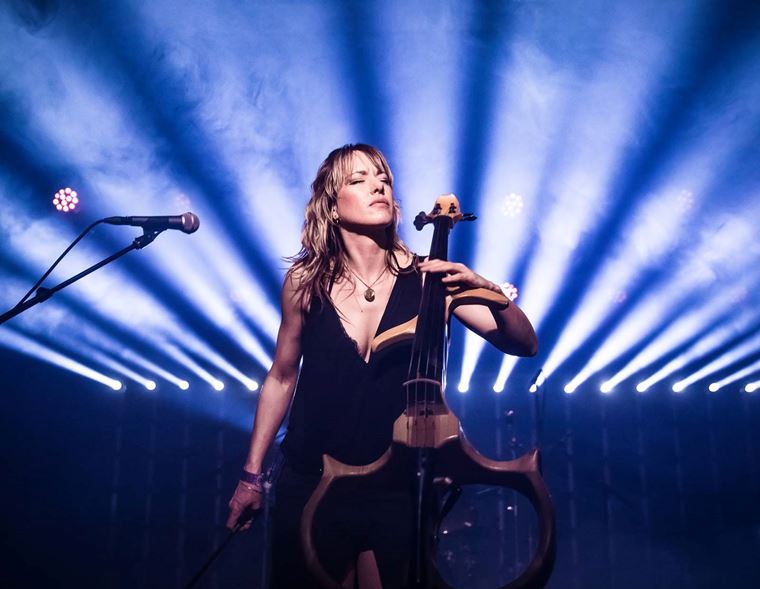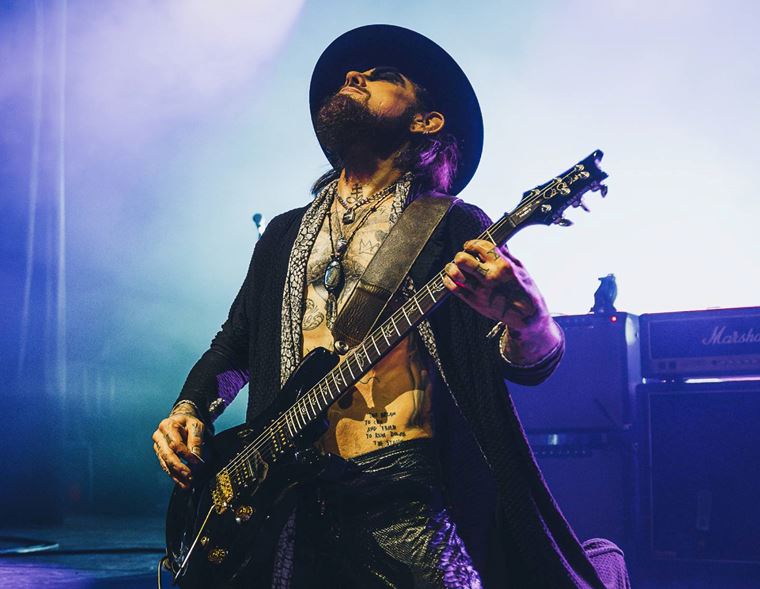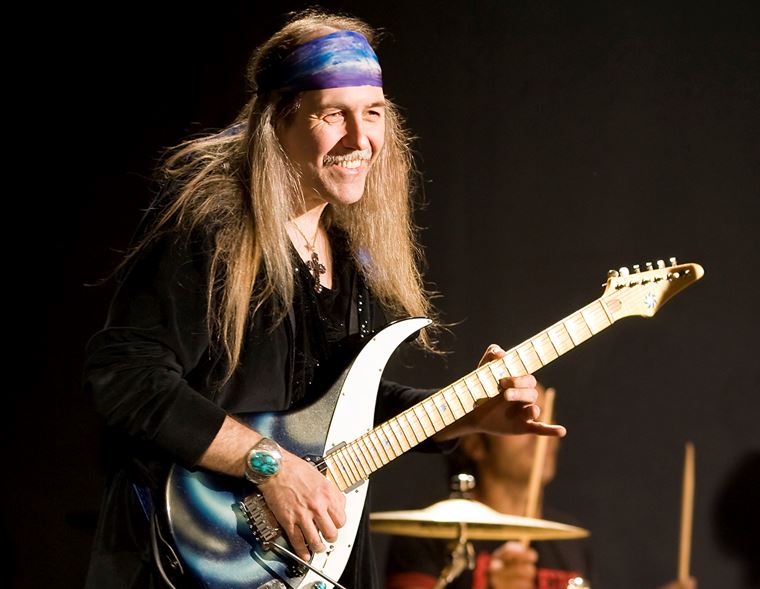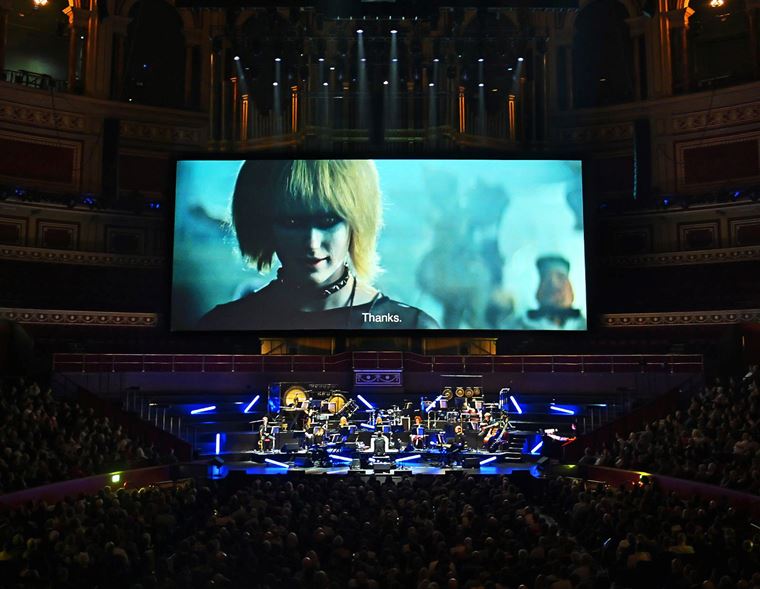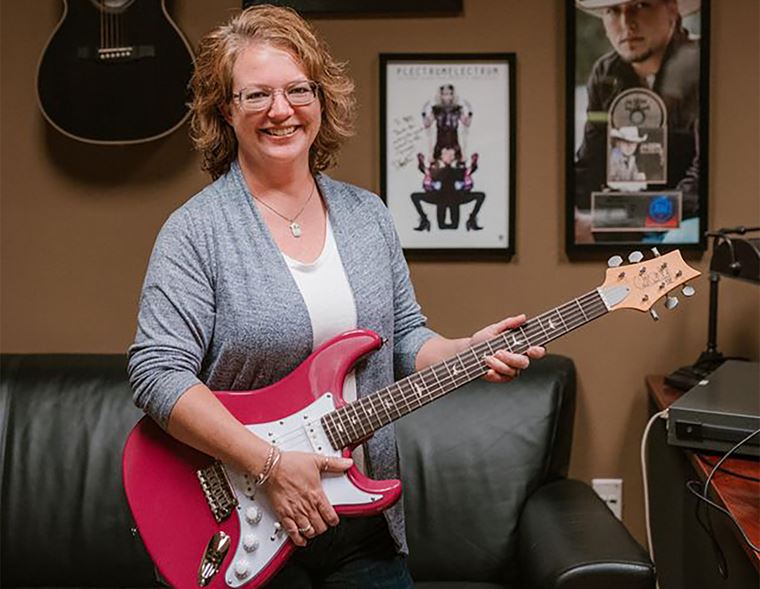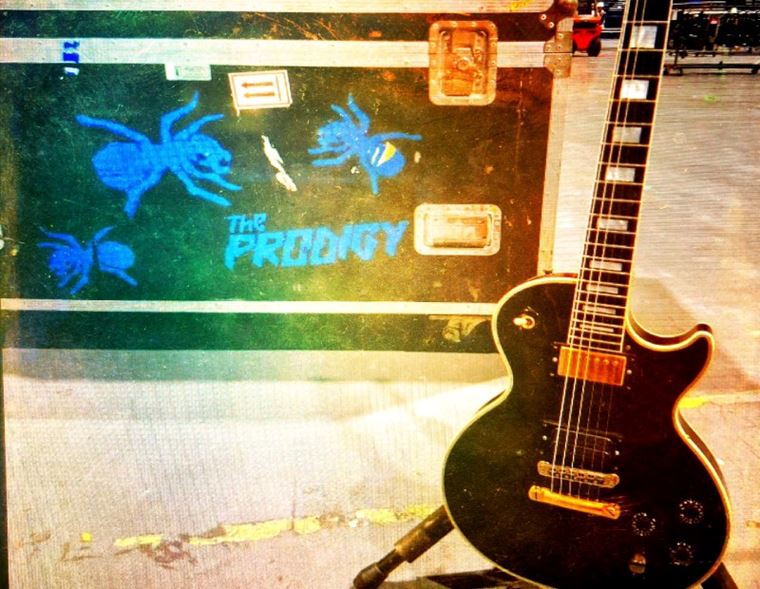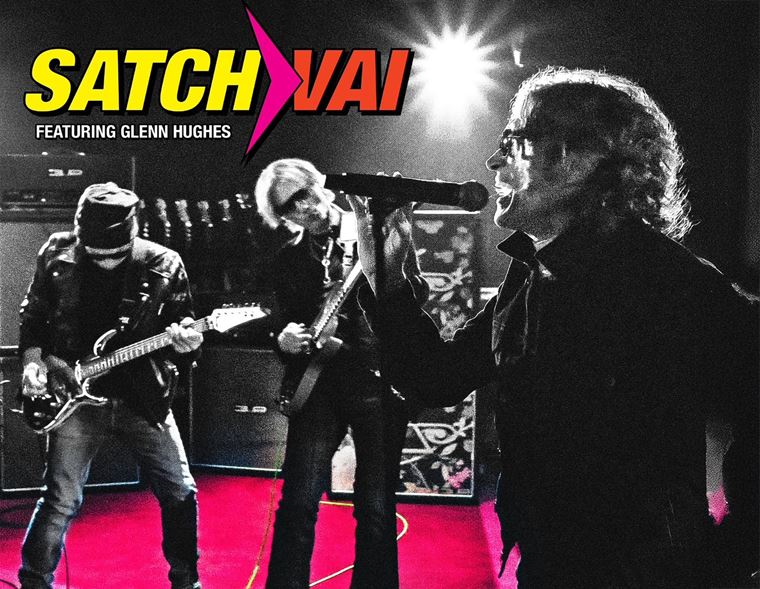The guitarguitar Interview: Myrkur
Do you like music that has a little bit of dark magic around it’s edges?
Do you like dramatic, cinematic music that blends forests and trees with darkness and danger?
If you do, you probably already know about Myrkur. If you don’t, you really should.
Myrkur (‘darkness’ in Danish and pronounced more-or-less like ‘Meer-Koor’) is the musical identity of Amalie Bruun. Winner of the 2018 Metal Hammer award for best album, Myrkur’s music blends dark Folk music with Black Metal and a symphonic grandeur than puts it on an entirely different planet from most of what’s around right now. This is transcendent, luminous music made in enchanted woodlands, populated by angels and witches alike. Adept at piano, guitar and violin, Bruun handles much of the instrumentation singe-handedly, as well as delivering incredible vocals with multiple harmonies. The effect is pretty stunning, and has put Bruun on the map as an artist of significance.
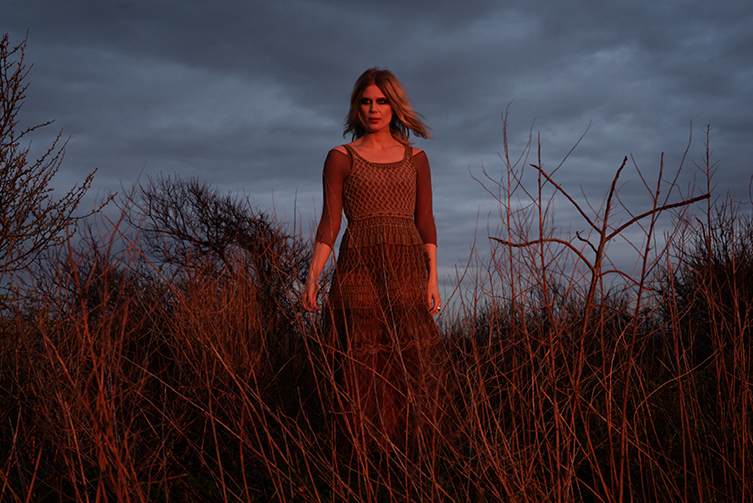
Myrkur’s first release was in 2014, and since then there has been a steadily increasing build-up of popularity over the space of two full-lengths albums, one live album (with songs reinterpreted for piano and choir, no less) and two EPs. 2020 has brought with it Folkesange, an enchanting (in a slightly sinister way) collection of songs that focus entirely on the traditional Folk music palette. The moments of dark, frantic metal that appeared on previous works is entirely absent on this occasion. Instead, our ears are treated to lyres, classical guitars, mandola and nyckelharpa, much of which is played by Bruun herself.
We clearly wanted to know more about Myrkur and the Folkesange album. Luckily for us, Amalie was happy to chat! We caught up with her one Wednesday morning a few weeks back via Skype, and spoke to her from her home in Denmark, from where we were self-isolating in Glasgow. We had a fantastic conversation, taking in the influence of Nature, the tuning of a nyckelharpa, and the everlasting influence of both Nordic mythology and King Diamond.
Here, then, is our conversaton, after saying hello and indulging in a little small talk about a mutual friend we share and some quick tips on Danish pronunciation...
Guitarguitar: So, I guess we should start on the new album, Folkesange. Compared with your previous records, which all have this great fusion of what I’d call angelic, ethereal folk with Black Metal, this time, it seems like the metal is entirely absent. Was that a conscious decision?
Amalie Bruun: Yeah, I mean, Metal was never on my mind for this record. There’s nothing ‘fusion’ about this album. I wanted to do it ‘pure’. Purely Folk. I wanted to stay authentic, and true to the original instrumentation. Of course, these are my personal interpretations, but I really didn’t want to reinvent the wheel, here.
GG: So, obviously there’s a language barrier, so I’m not entirely sure what the lyrics talk about, but is there a lot of Scandinavian folk culture and folklore in there?
AB: Well, the album is 50% traditional songs and 50% of my own material. So, the tradition songs are...yeah, many of them are old folk tales.
GG: Cool, is that something that you grew up with? Was that a big part of your upbringing?
AB: Yeah, it was! I’ve always listened to Nordic folk music, and we learn Norse mythology in school. It’s like a lot of it, it made it to children’s books as well, cartoons and things.
GG: So that’s something you’re just familiar with through being Scandinavian, basically.
AB: Yeah, pretty much! Can’t really escape it! (laughs)
GG: Yeah, yeah. So, with that in mind, that kind of Scandinavian stuff...we’ve been seeing it across the world, really...
AB: It’s true.
GG: And, if you think how close we are in the UK, we’re really not that far away, but culturally, we’re quite separate. Certainly, in terms of Yggdrasil, Bifrost, Odin and all this kind of stuff. We didn’t really hear too much of that generally, until the last couple of years: we’ve had the Marvel Thor movies, the Vikings TV show, the Norsemen TV show. Even with music, there’s yourself, Heilung and others. Where has this sort of resurgence of Nordic culture come from, do you think?
AB: Ummm, well, I don’t think it ever really left the United Kingdom, you know? Twelve hundred years ago, you definitely heard a lot from the Vikings! (both of us laugh) I don’t know why it’s all happening now. I sent out my first EP in 2014 and it definitely wasn’t that popular. Now it is and I don’t know! I also wonder sometimes if it’s gonna go away, you know, if it’s like a ‘hype’ in the rest of the world because it’s exotic and interesting, and then you see so much of it, it gets watered down. You, know, Dutch and French fans doing Viking music! (laughs) It’s like: ‘excuse me!’ So, I wonder if people will lose interest again. Which is fine, but the Viking community and the Folk music scene here, they never stopped!
GG: Sure.
AB: They’ll keep going. If it’s popular or not, it doesn’t touch them. It’s interesting, though! I just don’t know why, it’s funny!
GG: It’s strange, isn’t it? Because it seems to have come from different quarters, all at roughly the same time. Did you come out of the Scandinavian folk scene anyway? Is that something you were a part of previous to starting Myrkur?
AB: I mean, I take great pride in being part of no scene whatsoever.
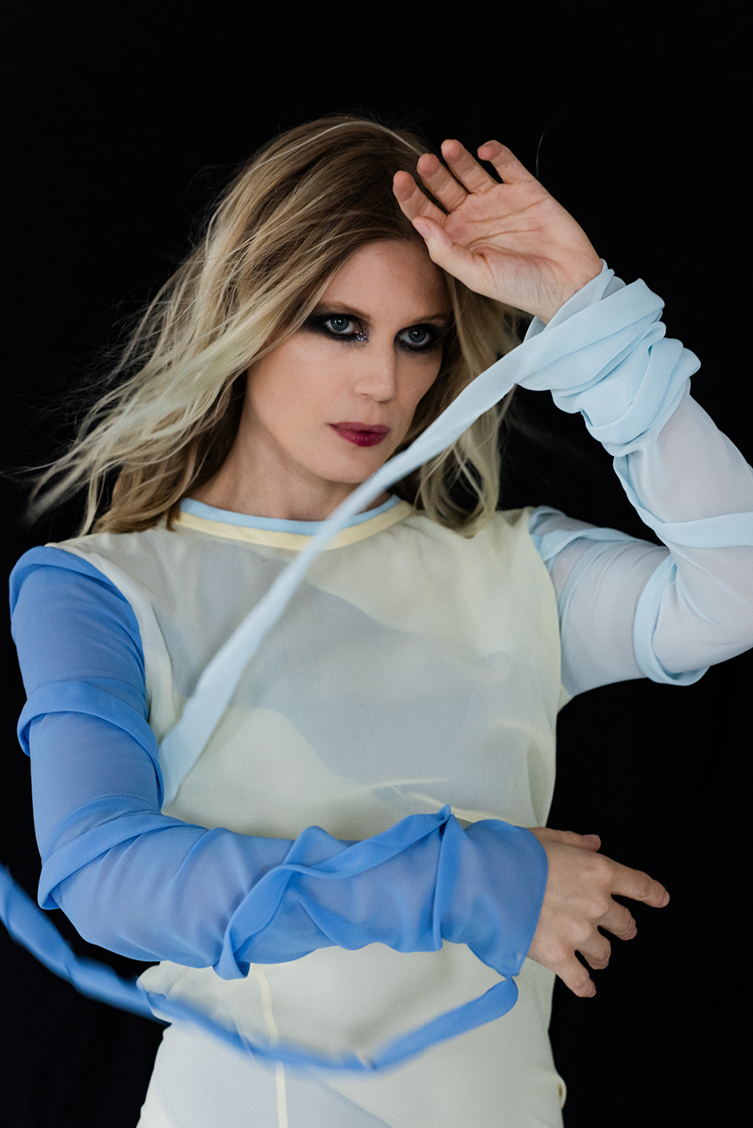
GG: Cool.
AB: The Metal, the Folk, I’m not in those scenes, so no. But, you know, music was always a very solitary process for me. I’ve never had a band, you know? I’ve always played by myself, playing the instruments at night. So, I don’t belong to any scene and I didn’t come out of it either. But I love it, yeah! I’d go to concerts.
GG: Yeah, there’s a really specific difference between being ‘of’ a scene and just enjoying a scene. You can be removed from it and still adopt parts of it, enjoying what that scene is doing without feeling like you’re ‘wearing the badge’, as it were.
AB: Yeah! I mean, I think people like Heilung, whom you mentioned, they’re from part of the Viking community for many years, and they are invested in it and they are very good at it because they are...ummm, historically educated. It’s a big interest to them. That’s very inspiring to be around.
GG: Oh yeah!
AB: I came from a bit of a different school, if you will, but we have a lot in common, especially Chris (Christopher Juul, Heilung member and producer) and I, who produced the Folkesange record, so obviously we have a lot in common.
GG: Yeah, totally. And, if those guys were part of a scene growing up, and lots of your music has the trappings of Black Metal in it, were you into that more as a young person? Was black metal something you adopted as a teenager?
AB: Yeah, as a teenager, but the folk music is from childhood.
GG: I see. In terms of the Denmark scene, I mean, I’ve read Lords of Chaos, and we all know about Mayhem and Euronymous, all that madness in Norway. So, what was the black metal scene in Denmark like when you were growing up?
AB: Ah, I’ve no idea, but I know that now, it’s starting to flourish again. Denmark has more of a claim to death metal. We’re not really pretending that we had too much to do with black metal, really.
GG: Yeah, okay.
AB: But, uh, you know, we have King Diamond, and a lot of Black Metal bands are inspired by him.
GG: Yeah, yeah! And not just Black Metal: even when you see bands like Ghost...
AB: Eeeeveryone! Even Metallica!
GG: Oh yeah, totally! They covered them!
AB: They love King Diamond!
GG: Well, what’s not to love?
AB: You tell me! (laughs)
GG: Talking about Denmark, as someone who is a fan of your music, in my imagination I hear a lot of, like, huge landscapes and lots of desolate nature and beauty, things like that. Would you say that that’s right enough? And would you say that Denmark’s nature and countryside is an influence on your music?
AB: Oh my God, yes! It’s everything! It’s everything. It’s all I care about. That and the family.
GG: Sure.
AB: Those are the two things that I need in my life.
GG: Nature and family.
AB: Yeah! And music (laughs)
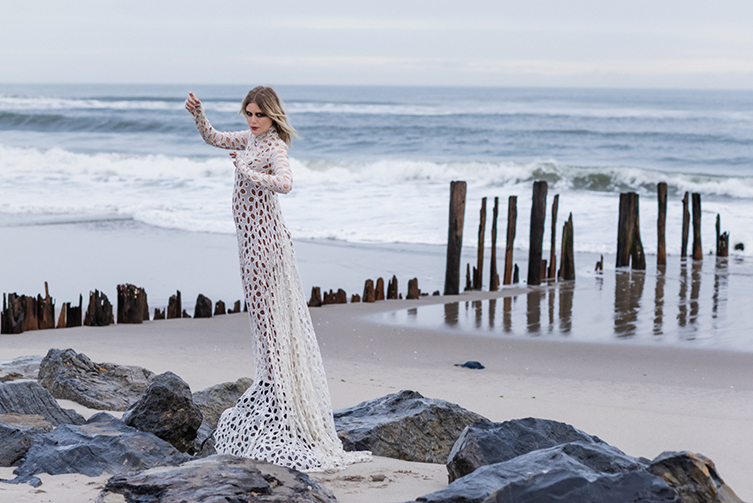
GG: And talking about music, since that’s why we’re here after all, is your main instrument piano?
AB: It’s the one I’ve played the longest, yeah.
GG: I’m just thinking about how your chord progressions are put together and the amazing vocal harmonies that you do. Did you have any formal training at an early age in order to be able to understand harmony and so on?
AB: Yeah, yeah, I’ve gone to school for years, yeah.
GG: Ahhhh, cool! I wondered about that. Your music’s very symphonic.
AB: Yeah, I’ve gone to music school for years. Not so much piano lessons but music theory, I’m very interested in.
GG: Oh, really? Interesting!
AB: Yeah.
GG: Ok, and in terms of your vocals then, is that something you’ve always had an aptitude for?
AB: Yeah, I don’t think you can really learn to sing: that’s one of those things you have to be born with. Some talent, I think, anyway. (laughs) But, um, you know, I’ve sung in choirs and things.
GG: Ahh, that would help explain the Mausoleum album that you made (piano and choral vocal renditions of songs from Myrkur’s first two albums). There’s you plus a whole choir of singers...
AB: Girl’s choir, yeah.
GG: It sounds amazing. On records, do you tend to harmonise your own vocals?
AB: Well, this album, Folkesange, was recorded...I play a lot of instruments of course, but I also have my live band with me, for example Jo (my friend Jo Quail, a stunning cellist who works with Amelie often), everyone who plays with me live is involved in that record. I had my two main choir girls, who are Norwegian, and they do a lot of the harmonies on the record. Their voices are very important, their personalities in their voices, so I didn’t want it to sound like a stack of me.
GG: Yeah, ok, that’s amazing. Talking about instruments, I’m sure every single music-related interview that you ever have to face from people like me includes chat like: ‘Oh Amelie, you do play some quite unusual instruments!’
AB: Right.
GG: But you do! The Nyckelharpa, for example! The first thing I thought, apart from ‘that’s incredible’, was ‘what happens when you need to change strings on that thing?’ Heheheh!
AB: I haven’t changed them yet! You rarely do. I’m not trained in playing that musical instrument, so when I play that at a concert, I don’t tune around much, I stay in one key. If you take a ‘real’ nyckelharpa player, there are some amazing ones, I could send you some names, they would be more flexible live! But yeah, it’s something else! A lotta strings!
GG: It’s amazing! Obviously it has a lot of visual appeal: somebody out in the middle of the woods playing such a strange instrument. It’s like ‘Oh!’
AB: Haha!
GG: Would you go to the nyckelharpa to write songs on? Or is it more of a tonal ‘ingredient’ in a song?
AB: No, no, I write a lot of the songs on that.
GG: Oh, wow.
AB: Yeah! It’s how folk music was originally written, on instruments like that. It’s limiting, in a good way. It doesn’t move around too much, harmonically.
GG: So, is it tuned in fourths or fifths?
AB: Fourths. But, but, but, no, I have it in fifths, sorry. Yeah, that’s what I do, and the vibration strings are chromatic. But they can also not be chromatic, it’s a matter of different tunings. Different players in Sweden throughout time, there’s a certain kind of ‘Oh, we tune after this guy’, you know?
GG: I see.
AB: Yeah.
GG: So, there are a few perceived ways of doing it and it’s up to the player, ultimately.
AB: Well, for me, I don’t really care about playing...uh, I just play what I think sounds good.
GG: Okay, cool! And in terms of when you’re writing, do you tend to have periods of time put aside to writing, like ‘March and April are for writing songs’, or do you write all the time?
AB: No, what happens usually is, I feel the urge to write and start writing. Then usually, that’s when an album happens and I start thinking about recording it.
GG: And do you tend to write more than you use?
AB: Oh yeah, who doesn’t? Haha!
GG: Weirdly, I always thought that was the case but quite a lot of people that I’ve spoken to say, ‘we needed ten songs so I wrote ten songs’! I find that amazing.
AB: Oosh! Okay, no no no. I need a lot in my system before I find what I think is the best.
GG: Ok, cool. That sounds more normal to me. So, briefly, since this is for guitarguitar and I’m a guitar player, let’s talk about guitars!
AB: Mm-hmm!
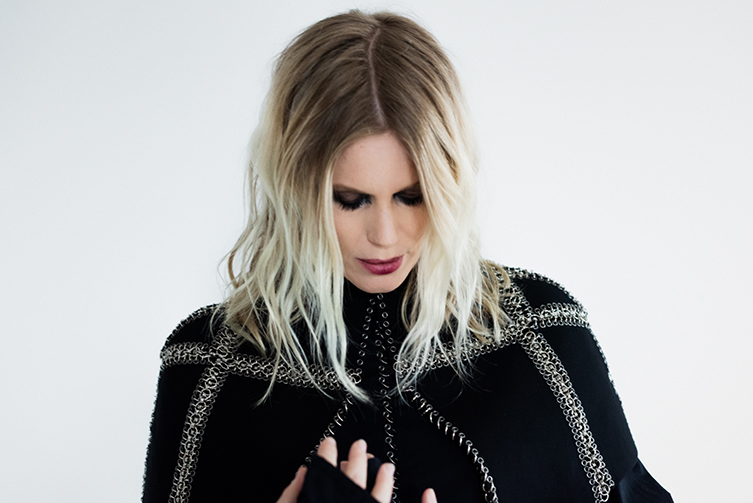
GG: The one that I see you play the most is that fabulous BC Rich Warlock! Is that a nod back to your Black Metal years?
AB: (laughs) Yeah, I always played that one! They gave me that Walnut finish one, which is amazing, and I dunno, I’ve always loved that guitar. In the beginning, I was mocked a little bit because it’s cartoonish, almost.
GG: Yeah.
AB: There I am in a white dress, playing this Warlock! It’s kinda funny, but I just love it! It’s old school, and I don’t play big solos, I’m just the background guitar player when I do live shows, at least.
GG: It’s one of those guitars where, I think we’re roughly the same age, and when I was 12 or 13 it was always Max Cavalera from Sepultura who played the Warlock.
AB: Haha, yeah!
GG: The Warlock was the ultimate heavy, pointy-ass guitar that your parents wouldn’t let you buy, so I’m fully behind people playing the Warlock!
AB: Hahaha! Yeah, totally!
GG: Do you tend to stay in standard tuning on guitar? Do you employ any drop tunings?
AB: I just do drop D. That’s it, yeah.
GG: Cool, and the way I hear your music, there’s so many interesting elements. It seems that the guitar is an element of it, rather than being ‘guitar music’, because there’s so much going on. But do you ever write on the electric guitar?
AB: Yeah, my two full-length ‘Metal’ records, if you will, were written on the guitar. And then I’d add in violin and so on.
GG: Ah, I see! So guitar, piano and violin are your main instruments, outside of your voice?
AB: Uhhhh, yeah! I’d never say that guitar was my main instrument! (laughs) But, I play it, in a certain way!
GG: Yeah, definitely! So what instrument did you favour for writing Folkesange? Was that guitar?
AB: Mm, I used everything else! You know, amongst other things the piano. There is some classical guitar in there on some songs, some Spanish guitar, but mainly its mandola, that Chris plays.
GG: The mandola.
AB: Yeah.
GG: Well, you know, the Spanish guitar makes sense...
AB: Yeah, it’s that black metal, folk metal sound that I’ve always loved.
GG: Totally, but even historically. I know that Nordic people aren’t Celtic, but there’s a definite correlation.
AB: Oh yeah!
GG: Obviously, being a man of Celtic heritage myself, I looked back into it and apparently, we all (Celts) came from around Austria and then Spain anyway.
AB: Well, the Spanish guitar makes sense! (laughs)
GG: Exactly! They came up round Portugal and through the UK, so, you know...there you go, that’s not really a question, I just felt like telling you that, haha!
AB: No, thank you! Haha!
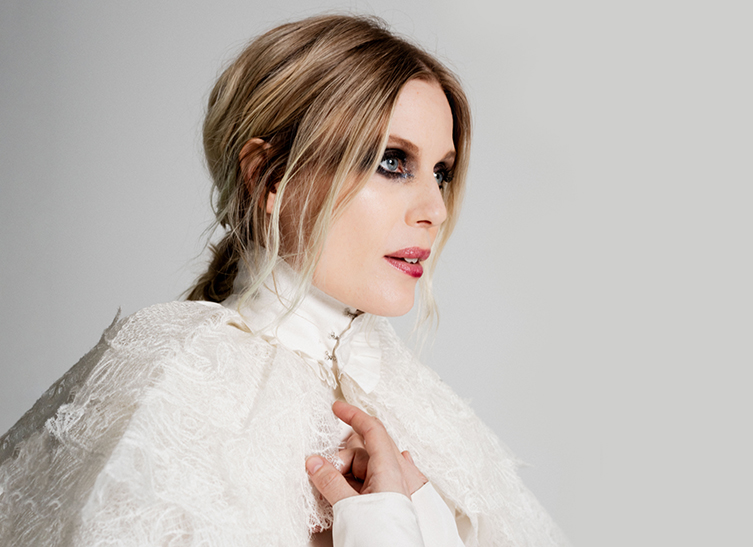
GG: Not at all! So, I was wondering, in terms of your interest in nature and so on, is there – without sounding too dumb about it – is there a kind of sense of Neo-Pagan, Pre-Christian vibe about your music?
AB: Yes! I mean, not Neo-Pagan. I’m not a Christian so, uh, I was raised with...it’s a Christian country here but a lot of the traditions are actually Pre-Christian, with lots of Pagan traditions. So, Yeah, definitely! I just hate the word Neo-Pagan, I don’t understand what that means, even.
GG: That’s a good distinction because my interpretation of Neo-Pagan might suggest something that’s just recently been picked up, which is kind of insulting if it’s been something that you’ve lived your whole life with, isn’t it?
AB: Yeah, I also think it has to weird associations at this point, that I just don’t want (laughs)
GG: Yeah, fair enough. It’s maybe more about going back to a time when people maybe paid more attention to nature then to commerce or whatever else.
AB: Yeah, exactly. And its music that’s made to pass the test of time: it’s not just made to get a hundred thousand plays on Spotify and then get forgotten. These songs are hundreds of years old, some of them, and they’re still relevant today.
GG: Absolutely, and that’s something I was actually going to try to talk to you about, but you’ve just kind of answered it! There was a sort of ‘eternal’ quality to folk music and folk culture, and your music – be it this record or the previous ones, because each record has a strong folk influence regardless – that’s kind of paying tribute to that, isn’t it?
AB: Yes, yeah.
GG: So, Folkesange is just out, and the Coronavirus is ripping through the world, so I assume you’re not going to be doing any touring right now?
AB: I wasn’t gonna do that anyway because I’m on maternity leave, but no, definitely not now!
GG: Oh wow, I hope that’s going great for you!
AB: Yeah! It’s interesting! (laughs)
GG: So I guess you’ll just see how things pan out in the near future and we’ll hear from you at some point after that?
AB: Exactly, haha.
Our time was up, and Amelie had another caller scheduled so we said goodbye. It’s pretty amazing that we’re in a world where I can talk on Skype from my kitchen table in Glasgow to somebody in a forest in Denmark, whilst the world is essentially closed for business due to the pandemic.
The irony of speaking about centuries old Folk culture via an international internet connection was not something that was lost on either of us! Indeed, it made the context a little more obvious, and for these timeless traditions to be woven into our lives now more than perhaps ever before.
Folkesange is out now on Relapse records. Keep up with Myrkur via the official Myrkur website. We'd like to thank Amalie for giving up for time for us! We'd also like to thank Kate Price for all of her help in setting this up.
Thank you for reading.
Until next time


